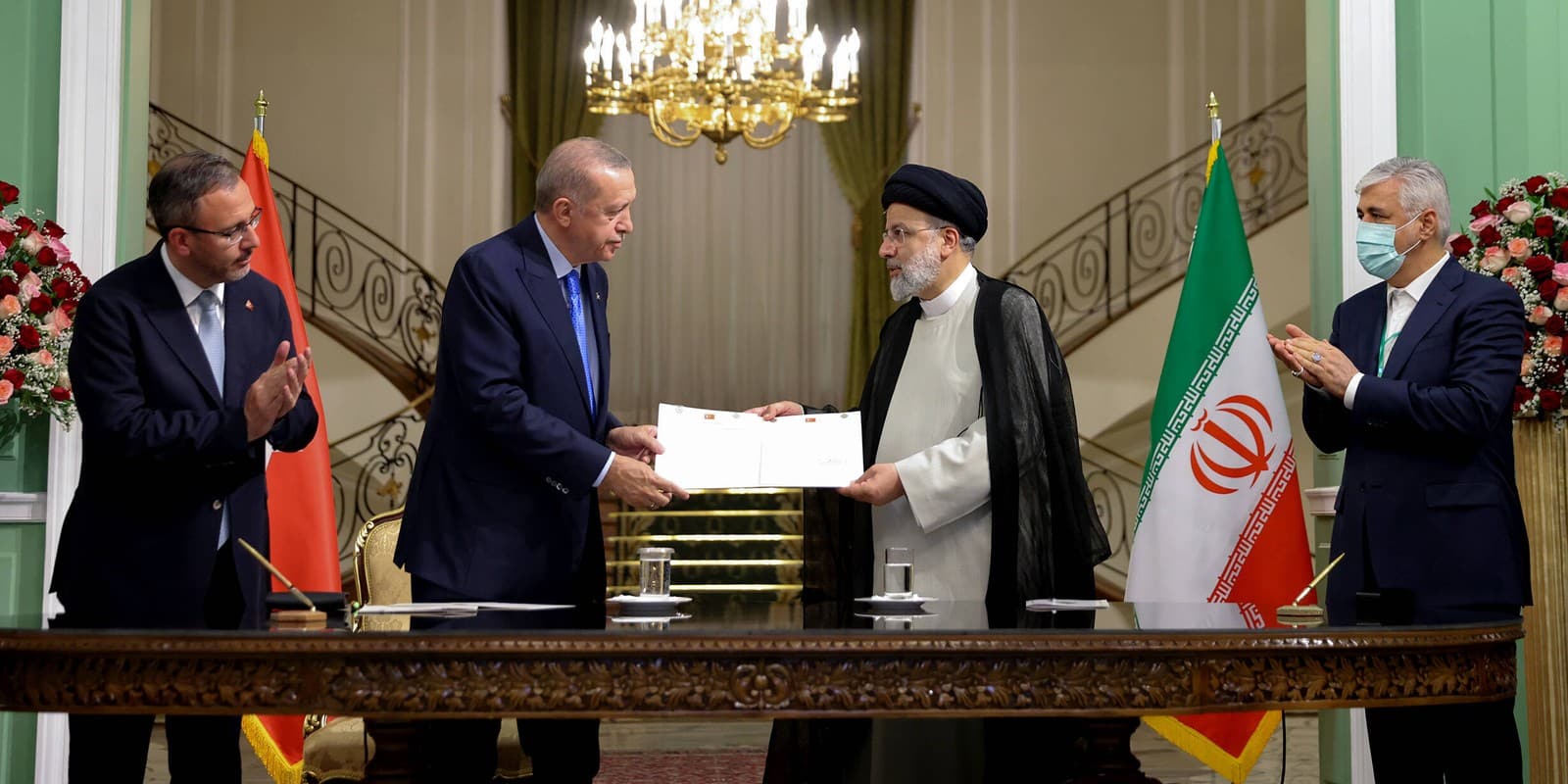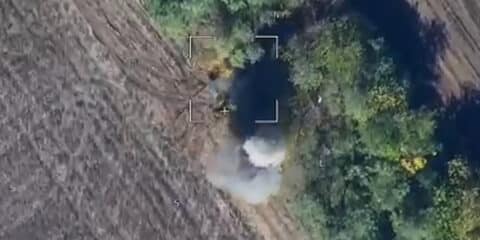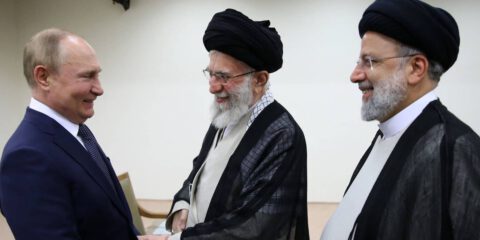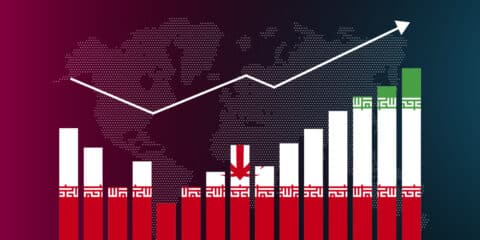Turkey’s mending of ties with Israel, the United Arab Emirates, Saudi Arabia, and even to some extent, Egypt serves to isolate Tehran further and retaliate for the terrorist attack attempt against Israelis in Turkey.
Despite the violence during Ramadan in Jerusalem – a sensitive issue for Ankara – the fragile reconciliation process between Israel and Turkey managed to move forward in June.
After the assassination of Islamic Revolutionary Guard Corps (IRGC) Colonel Hassan Sayad Khodai in late May, Iran vowed revenge against Israel. In June, Israel issued a travel warning calling on its citizens to avoid Istanbul in particular and Turkey in general due to the grave Iranian terrorist threat.
The Turkish National Intelligence Agency (MİT) cooperated with the Israeli Mossad due to the challenge to its sovereignty and potential damage to tourism, an important source of foreign currency. This cooperation bore fruit within a short time when Turkish security officials detained eight members of a terrorist cell before its members could attack Israeli tourists, a former Israeli ambassador, and his wife.
Despite being caught red-handed, Iran denied the accusation and called it a baseless Israeli attempt to ruin bilateral relations between Tehran and Ankara.[1] Despite the Iranian denial, and even before this latest incident, Turkey was already aware of the Iranian intelligence’s presence on its territory. In September 2021, Turkish-Iranian bilateral relations soured after MIT prevented the kidnapping of an Iranian dissident in Turkey by an Iranian spy ring.[2]
This article analyzes the deep-rooted Turkish Iranian relations characterized by a centuries-long rivalry and the current tensions between the two in Nagorno-Karabakh, Iraq, Syria, and regarding water consumption.
Turkish-Iranian Relations
Despite the tense nature of bilateral relations that stem from their centuries-long imperial rivalry and the Islamic Revolution – after which Iran sought to export its revolution to Turkey – the two have never engaged in a conventional war since the 1639 Treaty of Zuhab.
On June 27, Turkish Foreign Minister Mevlüt Çavuşoğlu posed for pictures with his Iranian counterpart, Hossein Amir Abdollahian, in Ankara as if nothing had happened the previous week, which testifies to the durable nature of relations between the two countries.
The two countries share common interests. For instance, both Ankara and Tehran struggle against Kurdish separatism within their borders and collaborate against Kurdish independence in northern Iraq. In addition, they have expressed solidarity on the Iranian nuclear program and the question of international sanctions. Since border trade with Iran is an essential source of income, Turkey, Brazil, and Iran led an initiative to prevent sanctions in May 2010. Then, Turkey attempted to store Iranian low-enriched uranium on Turkish soil in return for nuclear fuel.[3] However, this initiative was not embraced by the international community.
In June of that year, despite being a NATO member, Turkey did not hesitate to act against the Western bloc and vote against sanctions at the UN Security Council.[4] Further, Turkey circumvented UN sanctions by conducting trade with Iran through its state-owned Halkbank.
Today, Turkey’s position remains essentially unchanged. During the last
Çavuşoğlu-Abdollahian summit in Ankara on June 27, Turkey once again emphasized the need to abolish all sorts of sanctions against Iran while calling on the US to revive the 2015 Joint Comprehensive Plan of Action (JCPOA) Agreement.[5]
Nevertheless, friction between the two is visible as their ambitions clash in the greater Middle East, as well as disagreement over water sharing in the Tigris and Aras rivers. Despite this reality, the resilience of bilateral relations was demonstrated by Iran’s foreign minister, who equated Iran’s security with Turkey’s.[6] In other words, both continue to smile at each other above the table but continue to kick each other underneath.
Nagorno-Karabakh
Especially after the 2020 Nagorno-Karabakh War between Armenia and Azerbaijan, the Turkish penetration in the Caucasus became evident. Turkey’s political and military support to Azerbaijan allowed Azerbaijan to re-capture the Nagorno-Karabakh-Iran borderline, thus significantly expanding the Iranian-Azeri border.
The Azeri victory against Armenia was also welcomed by Iranian citizens of Azeri origin who live in northwestern Iran, called “southern Azerbaijan” in Turkic terminology. Azerbaijan, backed by Turkish and Israeli weapons technology, set off alarm bells in Tehran. From Tehran’s perspective, an Azerbaijan free from Armenian threats may focus its attention on southern Azerbaijan in Iran.
Therefore, during the war, Iran provided Armenia with a corridor for receiving new weapons from Russia. Iran’s pro-Armenian stance during the war was criticized by its local Azeris and the Turkish government. Erdoğan administration’s mouthpiece, Yeni Şafak, did not hesitate to implicitly threaten Iran by publishing a news piece titled, “Iran is playing with fire: 35 million Turks rebelled following Iranian weapons shipments to Armenia.”[7]
During the military parade in Baku on December 10, marking the military victory, Turkish President Tayyip Erdoğan was quoted singing the “song of the Aras River,” implying that the border between Iran and Azerbaijan was artificial. This means the separation between southern Azerbaijan and the Republic of Azerbaijan was an unjust act.
This further strained relations between Iran and Turkey.[8] Unsurprisingly, Tehran summoned the Turkish ambassador to the ministry of foreign affairs and sent a diplomatic note to Turkey.[9]
Moreover, then Iranian Foreign Minister Mohammad Javad Zarif took one step further and protested against Erdoğan in a tweet. Zarif warned the Turkish president that he must not comment on Iranian Azerbaijan further.[10] The Iranian anxiety peaked when Turkey, Azerbaijan, and Pakistan held a joint military drill in Baku named the “Three Brothers” in 2021.[11]
In response to this trilateral alliance, the IRGC conducted a military drill called “Conquerors of Khaybar” near the Iranian-Azeri border. According to Iran’s official news agency IRNA, the army drill “demonstrated Iran’s readiness for future challenges that might be posed against it through borders.”[12]
Iraq
While Nagorno-Karabakh is considered a relatively new theatre for friction between Ankara and Tehran, especially after the launch of Operation Claw in 2019, designed to confront the Kurdistan Workers Party (PKK) in northern Iraq, the country has turned into the main arena for the Turkish-Iranian rivalry.
Since the operation’s beginning, Turkey officially built 38 military bases in northern Iraq. However, according to Badr Al-Ziadi, a member of the Iraqi parliament’s public order and security committee, this number jumped to 70.[13] According to official Turkish statements, the northern Iraqi regions of Haftanin, Metina, Zap, Sidekan, Avaşin, Hakurk, Basyan, and Sine already are under Turkish control.
Apart from these regions, Turkey’s growing operations around Bashiqa, Mahmour, and Sinjar mountains are setting off alarm bells in Tehran. The dramatic shift in Turkish strategy to confront the PKK abroad has led Ankara to establish “temporary” military bases in northern Iraq.
This has increased the anxiety in Iran. Those concerns were sharpened even further when Kurdistan Regional Government (KRG) Prime Minister Masrour Barzani stated his desire to sell KRG gas to Europe via Turkey. Thus, from Tehran’s perspective, Ankara may also use the pipeline’s security as an excuse to maintain its strategic deployment in the region.
Inevitably, KRG’s deepening economic dependency on Turkey has turned the PKK into an opponent of Erbil. Thus, having been cornered by Turkey and the KRG, the PKK initiated a rapprochement towards Iran-backed Shi’ite militias, including Hashd al-Shaabi (paramilitary forces). The PKK fighters in the Sinjar Mountains are already engaged with these forces.[14]
Moreover, to resist Turkey’s forays, 1,500 PKK members have joined the ranks of the Iranian-affiliated Shi’ite militia. Erdoğan’s belligerent rhetoric against the PKK’s presence in the Sinjar mountains states that Turkey will not let Sinjar be turned into a second Qandil Mountains – where the PKK’s headquarters are located.
February 3 last year was a milestone when the Hashd al-Shaabi forces launched 18 rockets against Turkey’s Bashiqa military base. While that massive rocket attack did not cause any casualties among Turkish soldiers, another rocket attack on April 14 killed a Turkish soldier.[15]
Since then, Hashd al-Shaabi has called Turkey an occupying force in Iraq together with the United States.[16] Various Shi’ite factions collaborating with Hashd al-Shaabi, such as Asaib Ahl al-Haq, threatened Turkey openly with full-scale war. At the same time, another faction, Harakat Hezbollah al Nujaba, sought to influence Turkish public opinion by broadcasting anti-Erdoğan propaganda films in Turkish.[17]
In response to Hashd al-Shaabi’s provocations, Ankara lowered tensions by underlining its cooperation with the Iraqi government. However, suppose the threat level against Turkish soldiers rises due to the growing PKK presence in the Sinjar Mountains or more frequent attacks against the Turkish military bases. In that case, Ankara likely will have no choice but to act against Iran-backed Hashd al-Shaabi.[18]
Syria
Like Iraq, Turkey’s military penetration in Syria creates a massive headache for Iran. Turkey and Iran are fighting a proxy war. While Turkey backs the Free Syrian Army (FSA) that sought to overthrow Syrian President Bashar Assad and remove Russian forces from the country, Iran backs Assad and local Shi’ite elements. Turkey has changed its strategy by actively participating in the conflict, providing active support to the FSA from the beginning of the Syrian Civil War in 2011. In 2016, Turkey became an active belligerent with Operation Euphrates Shield.
Erdoğan’s political alliance with the Nationalist Movement Party (MHP) had a crucial impact on this policy. Ankara sees the Syrian Kurdish PYD-YPG as a symbiotic extension of the PKK. Turkey regards northern Syrian Kurdish enclaves as a threat to its national integrity.
As a result, to end the PYD-YPG rule, Turkey launched three military operations against this area in 2016, 2018, and 2019. In addition, Turkey did not hesitate to confront Assad’s forces in 2020 after 33 Turkish soldiers were killed in Idlib. Today, thanks to these extra-territorial military interventions, Turkey expelled, to a great extent, the PYD-YPG presence next to its border.
However, the ongoing Kurdish presence in Tel Rifat and Manbij regions push Turkey to finalize its grand plan: creating a PYD-YPG-free zone on the west bank of the Euphrates River. On June 1, Turkey’s cabinet discussed its plan to launch a new military operation in the last PYD-YPG strongholds in Syria.[19]
Iranian anxiety originated in the Shi’ite majority towns of Nubl and Al-Zahra’s existence in the Tel Rifat enclave. In Iranian eyes, a possible Turkish operation that would result in the enclave’s complete occupation would allow Turkey and the Sunni FSA alliance to expand their influence in the Aleppo region.[20]
During the recent Çavuşoğlu-Abdollahian meeting, the Iranian foreign minister reluctantly acknowledged Turkey’s right to guarantee security by conducting a military operation in northern Syria.[21] Turkey utilized the latest Iranian mishap into a tangible foreign policy gain by leaving Tehran no choice but to accept the possible Turkish offensive in Syria to prevent a severe deterioration in the bilateral relations with Turkey.
Water
While Nagorno-Karabakh, Iraq, and Syria can be considered serious issues, the water question, which does not occupy the headlines, may constitute the most significant disagreement between the two countries. During the last decade, both Turkey and Iran experienced extreme drought. In both countries, some lakes and rivers disappeared.
The Tigris and Aras rivers are essential for both countries’ irrigation systems. Since 1989, in the framework of its ambitious Great Anatolia Project (Southeastern Anatolia Project), Turkey has built 19 dams and 14 hydroelectric power plants on the Euphrates and Tigris rivers. Ankara adopted a similar strategy for the Aras River and the Sefaköy and Karakurt dams on this river. Simultaneously Turkey continues the construction of two additional dams: the Ünlendi and Söylemez, on the Aras River.
Iran, which suffers from water shortages, accuses Turkey of causing the drought in the region by cutting the water flow to Iran and neighboring Iraq. Iran also holds Turkey responsible for the sandstorms that devastate Iran and Iraq.
On May 10, the Iranian foreign minister openly stated his country’s opposition to Turkey’s dam project. Abdollahian went further and blamed Turkey directly for the water shortage in Iraq and Iran. He even proposed that Turkey form a water committee to discuss water usage between the two countries.[22]
While Ankara did not respond to Iran’s water committee request, it rejects the Iranian claims and indicates that climate change is the leading cause of water shortages. Turkey accuses Iran of water mismanagement.
From Turkey’s perspective, Iran’s accusations against Ankara make it easier for Tehran to eliminate domestic public criticism. Given Iran’s growing water scarcity, which has triggered social unrest in its provinces such as the Khuzestan, Tehran continues to see the Turkish dams as a national security threat.[23]
Conclusion
Turkey’s mending of ties with Israel, the United Arab Emirates, Saudi Arabia, and even to some extent, Egypt serves to isolate Tehran further and retaliate for the terrorist attack attempt against Israelis in Turkey.
The failed attack revealed Iran’s despair. It should also be noted that the Iranian failure also revived decade-long-dormant Israeli-Turkish intelligence cooperation – a massive plus for Turkey vis-à-vis Iran.
Despite Iran’s apparent attempt to violate Turkey’s sovereignty in Istanbul, the centuries-long Turkish-Iranian diplomatic tradition dictated that Ankara respectfully receive the Iranian foreign minister. In other words, Turkey behaved by the book. As the well-known Chinese general and military strategist Sun Tzu once said, Ankara kept its friends close but its enemy closer. Turkey managed to utilize this infamous event for gain in Syria.
Having received the reluctant Iranian green light for the new operation in Syria, Turkey seems ready to finalize its grand plan on its southern border by removing the PYD-YPG from the west bank of the Euphrates River.
Meanwhile, Turkey maintains the upper hand in relations with Iran, especially in
Nagorno-Karabakh and the water issue. Turkey may improve its position in northern Iraq and may not even hesitate to confront Hashd al-Shaabi if further challenged.
Notes
[1] Amberin Zaman, “Iran’s foreign minister checks in with Ankara as Turkey courts Tehran’s foes,” Al-Monitor, June 27, 2022, https://www.al-monitor.com/originals/2022/06/irans-foreign-minister-checks-ankara-turkey-courts-tehrans-foes [Accessed: June 29, 2022]
[2] “Türkiye’nin Artan Nüfuzu İran’ı Kaygılandırıyor”, VOA, November 4, 2021, https://www.amerikaninsesi.com/a/turkiyenin-kafkasyadaki-nufuzu-irani-endiselendiriyor/6299931.html [Accessed: June 29, 2022]
[3] “Iran Agrees To Nuclear Swap Deal Through Turkey”, Radio Free Europe, May 17, 2020, https://www.rferl.org/a/Iran_Agrees_To_Nuclear_Swap_Deal_Through_Turkey/2044249.html [Accessed: June 29, 2022]
[4] “BM’de Türkiye’nin İran oyu hayır oldu”, Milliyet, June 9, 2010, https://www.milliyet.com.tr/dunya/bmde-turkiyenin-iran-oyu-hayir-oldu-1248838 [Accessed: June 29, 2022]
[5] “Mevlüt Çavuşoğlu, Mevkidaşı Abdollahian İle Ortak Basın Açıklaması Yaptı”, YouTube, June 27, 2022, https://www.youtube.com/watch?v=9ioYfRYK3fA&ab_channel=FindyNews [Accessed: July 06, 2022]
[6] “İran Dışişleri Bakanı Abdullahiyan: Türkiye’nin Güvenliği İran’ın Güvenliği Demektir”, SDE, June 28, 2022, https://www.sde.org.tr/siyaset/iran-disisleri-bakani-abdullahiyan-turkiyenin-guvenligi-iranin-guvenligi-demektir-haberi-26972 [Accessed: June 29, 2022]
[7] “İran ateşle oynuyor: Ermenistan’a silah yardımları 35 milyon Türk’ü ayaklandırdı”, Yeni Şafak, October 1, 2020, https://www.yenisafak.com/dunya/iran-ermenistanin-yardimina-kostu-irandaki-azerbaycan-turkleri-sokaga-dokuldu–iranda-ne-kadar-turk-yasiyor-3569403 [Accessed: June 30, 2022]
[8] “Cumhurbaşkanı Erdoğan Aras türküsünün sözlerini okudu: Ay Lâçin, can Laçin, men sene kurban Laçin”, Yeni Şafak, December 10, 2020, https://www.yenisafak.com/video-galeri/dunya/cumhurbaskani-erdogan-aras-turkusunun-sozlerini-okudu-ay-lcin-can-lacin-men-sene-kurban-lacin-2213339 [Accessed: June 29, 2022]
[9] Erdoğan’ın Aras Türküsü İran’ı neden kızdırdı?, Bianet, December 11, 2020, https://m.bianet.org/bianet/dunya/235902-erdogan-in-aras-turkusu-iran-i-neden-kizdirdi [Accessed: June 30, 2022]
[10] @Jzarif, Twitter, December 11, 2020, https://twitter.com/JZarif/status/1337280285398999041 [Accessed: June 30, 2022]
[11] “Türkiye, Azerbaycan ve Pakistan özel kuvvetleri Bakü’de ortak tatbikata başladı”, AA, September 12, 2021 https://www.aa.com.tr/tr/dunya/turkiye-azerbaycan-ve-pakistan-ozel-kuvvetleri-bakude-ortak-tatbikata-basladi/2362808 [Accessed: June 30, 2022]
[12] “‘Conquerors of Khaybar’ drills clear message to Israel, ISIS: Assyrian MP”, IRNA, October 4, 2021, https://en.irna.ir/news/84492981/Conquerors-of-Khaybar-drills-clear-message-to-Israel-ISIS [Accessed: June 30, 2022]
[13] “Iraklı vekilin iddiasına, Erbil yönetimi itiraz etti… Türkiye, IKB’de 70 üs kurup, 30 bin asker mi yerleştirdi?”, Independent Türkçe, https://www.indyturk.com/node/380191/haber/irakl%C4%B1-vekilin-iddias%C4%B1na-erbil-y%C3%B6netimi-itiraz-etti%E2%80%A6-t%C3%BCrkiye-ikbde-70-%C3%BCs-kurup-30 [Accessed: June 30, 2022]
[14] “‘Türkiye’nin Operasyonları PKK’yı İran’a Yakınlaştırabilir’”, VOA, May 24 2022, https://www.amerikaninsesi.com/a/turkiyenin-operasyonlari-pkkyi-irana-yakinlastirabilir/6587596.html [Accessed: June 29, 2022]
[15] “Başika’daki üsse roketli saldırı: 1 asker şehit oldu”, TRT Haber, April 15, 2021, https://www.trthaber.com/haber/gundem/basikadaki-usse-roketli-saldiri-1-asker-sehit-oldu-572991.html [Accessed: June 29, 2022]
[16] Fehim Taştekin, “Türkiye-BAE-İsrail üçgeni için yeni katalizör İran”, Al-Mointor, February 8, 2022, https://www.al-monitor.com/tr/originals/2022/02/iran-emerges-catalyst-closer-ties-turkey-uae-israel-triangle [Accessed: June 29, 2022]
[17] Mehmet Alaca, “Türkiye’nin Irak ile İlişkilerindeki Açmaz: İran Yanlısı Gruplar”, ORSAM, August 20, 2021, https://orsam.org.tr/tr/turkiyenin-irak-ile-iliskilerindeki-acmaz-iran-yanlisi-gruplar/ [Accessed: June 29, 2022]
[18] Mehmet Alaca, “Türkiye’nin Irak ile İlişkilerindeki Açmaz: İran Yanlısı Gruplar”, ORSAM, August 20, 2021, https://orsam.org.tr/tr/turkiyenin-irak-ile-iliskilerindeki-acmaz-iran-yanlisi-gruplar/ [Accessed: June 29, 2022]
[19]” Erdoğan’dan Suriye’nin kuzeyine operasyon sinyali”, DW, June 1, 2022, https://www.dw.com/tr/erdo%C4%9Fandan-suriyenin-kuzeyine-operasyon-sinyali/a-61996343 [Accessed: June 30, 2022]
[20] Amberin Zaman, “Iran’s foreign minister checks in with Ankara as Turkey courts Tehran’s foes”, Al-Monitor, June27, 2022, https://www.al-monitor.com/originals/2022/06/irans-foreign-minister-checks-ankara-turkey-courts-tehrans-foes [Accessed: June 30, 2022]
[21] “İran Dışişleri Bakanı Abdullahiyan: Suriye’de, Türkiye’nin güvenlik endişeleri kalıcı şekilde giderilmeli”, AA, June 27, 2022, https://www.aa.com.tr/tr/dunya/iran-disisleri-bakani-abdullahiyan-suriyede-turkiyenin-guvenlik-endiseleri-kalici-sekilde-giderilmeli/2623767 [Accessed: June 30, 2022]
[22] “İran: Türkiye’nin baraj planlarına karşıyız”, Cumhuriyet, May 10, 2022, https://www.cumhuriyet.com.tr/turkiye/iran-turkiyenin-baraj-planlarina-karsiyiz-1934567 [Accessed: June 30, 2022]
[23] Fehim Taştekin, “İran ve Türkiye arasında su gerilimi krizlerin anası mı?”, Al-Monitor, May 13, 2022, https://www.al-monitor.com/tr/originals/2022/05/water-crisis-brewing-between-turkey-and-iran [Accessed: June 29, 2022]
Photo: IMAGO / Xinhua









 - בניית אתרים
- בניית אתרים